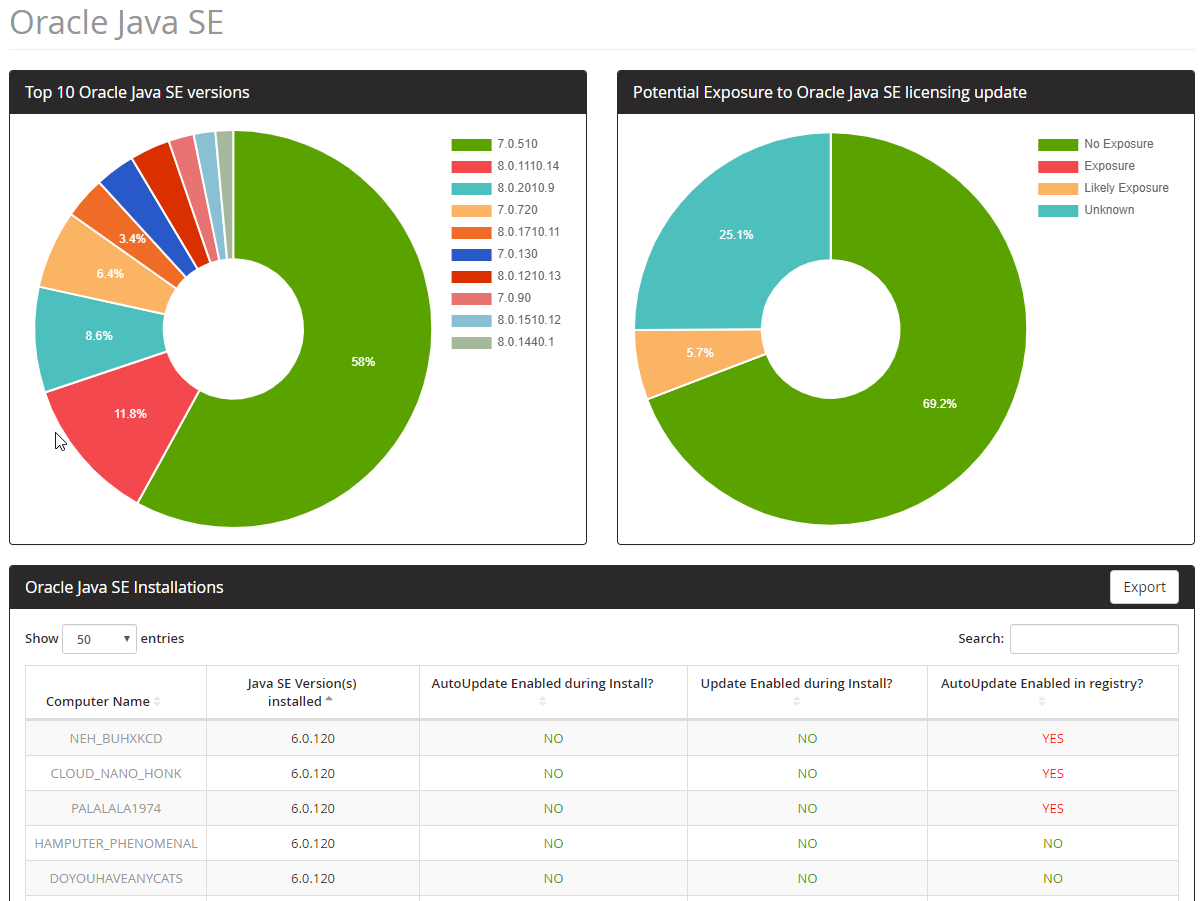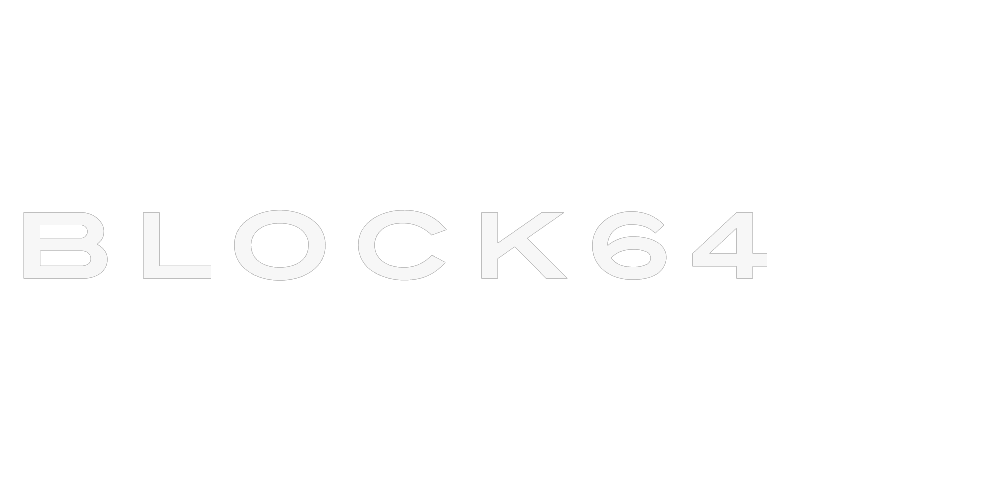Oracle Java SE compliance concerns? Block 64 has you covered.
If you’re like many of our clients, you’ve probably lost some sleep over Oracle’s changes to Java SE Licensing and the compliance risks this has created. The good news is Block 64’s Discovery and Analytics platform gathers the data you need to determine your exposure – and quickly. But before we go there, a bit about the problem itself.
Almost a decade after acquiring Sun, Oracle is now moving to monetize what for years had been available free of charge. At issue is Java SE (Standard Edition) – a central component of the Java Runtime Environment (JRE) and the Java Development Kit (JDK), among other versions.
Here’s the crux: In some instances, Java SE is still free, however, if commercial features are enabled, like “auto-updates”, you are now on the hook to purchase a Java SE subscription license. Depending on the number of endpoints you have running Java, the costs can add up quickly.
If there’s a way to complicate things, Oracle will find it
Part of the challenge is Oracle makes it easy to unintentionally activate these subscription-based features. Any user can download Java from Oracle’s site, the hard part is understanding whether the features you are activating are free or not.
The acronym swamp that comprises the Java landscape doesn’t exactly help the confusion. You’ve got Java SE, JRE, JDK, EE, ME, the list goes on. Adding more mud to the waters, functionality and entitlements often cross the boundaries between Java versions. Most users who download “Java” are in fact downloading Java RE. Many users unwittingly end up running the Java Development Kit, which is intended for developers. When you install JDK, you generally also install the JRE, which makes installations of the JDK more likely to be susceptible to the same Java SE licensing changes.
Have we lost you yet?
If you take anything away from this, it’s that you are still legally allowed to have any version of Java SE installed on your commercial workstations. But if you are running Java SE 8 (Update 192 or newer) in a commercial environment, you are no longer entitled to free updates from Oracle and could be at risk.
Why the Java SE issue is so hard to fix
If you don’t mind paying money to purchase Java SE subscription licenses for your users, you can do so. That will certainly keep Oracle happy while making you a little poorer in the process. The other option is to disable auto-updates on any existing Java SE installations where this feature isn’t required.
It sounds easy but assessing your exposure across hundreds or thousands of end points is simply not realistic. This is because the data required to understand which workstations are affected is not captured by traditional inventory tools. Unravelling which versions are relevant or not, and what the implications are from a licensing compliance standpoint, is one more reason Oracle often gets the upper hand in presenting you with a bill you didn’t expect.
Good news for Block 64 customers
Already a Block 64 customer? You’ll be happy to know that this is data we already gather through our discovery and analytics platform. Not only do we detect the installation of Java SE by querying the relevant areas of your systems, we dig a layer deeper to see if the auto-update function is a) installed and b) enabled, and then visualize your exposure in a simple and easy-to-read report.
 Block 64’s simple Java SE exposure report outlines areas of concern instantly.
Block 64’s simple Java SE exposure report outlines areas of concern instantly.
The Block 64 Oracle Java SE Report is one of many standard reports we provide through our subscription. It will tell you the Java versions you have running in your environment and where you have exposure to the Java SE licensing update. If you’re not a Block 64 customer, we’re more than happy to assess your environment and provide you with your own Java SE report.
Now you’ve got options. You can pay for subscription licenses and be done with it. Or you can save money by pinpointing exactly where auto-updates need to be disabled and use your systems management tool to do the rest.
At Block 64, we think options are a good thing!
If you’re interested in learning more, get in touch by visiting www.block64.com.

